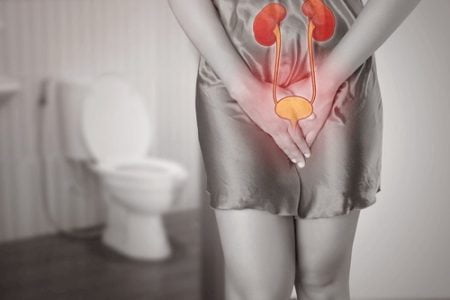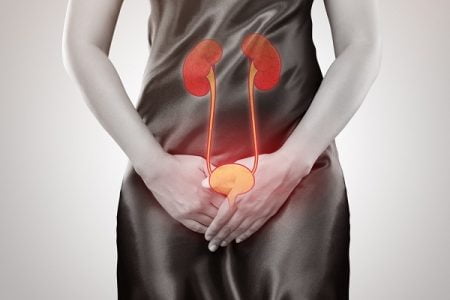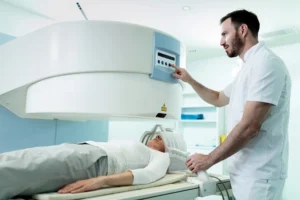Circumcised VS Uncircumcised Penis: Risks of Infection
- Updated on: Jun 11, 2024
- 4 min Read
- Published on Apr 22, 2021

Definition and Meaning: What is circumcision?
Circumcision is the surgical removal of the foreskin (fold of the skin) of the penis. It is the tissue that covers the head (glans) of the penis. Male circumcision is an ancient practice and has religious significance also, particularly in Islam and Jewism. Many parents have their sons circumcised for religious or medical or other reasons. The decision to get circumcised affects both personal and health-related factors.
In the circumcision procedure, the foreskin of penis is opened, adhesions are removed, and the foreskin is removed from the head of the penis. In some procedures, a circumcision device in the form of a ring may be placed and then the foreskin is cut off and removed.
Circumcised VS uncircumcised penis: Is there really a difference between circumcised and uncircumcised penis?
The main difference between a circumcised and uncircumcised penis is the presence of foreskin around the head of the penis. In a circumcised penis, the foreskin is cut and removed, while in the uncircumcised penis, the foreskin remains as such and is not cut from the head of the penis called glans.
Circumcision is about personal preference of a person. It does not impact your size of penis, sexual pleasure or sexual sensitivity, sperm production, etc. But it can have a big impact on your hygiene and overall health.
There is generally not big impact of circumcision on your overall sexual health. But, if you are uncut (uncircumcised), you will need to wash penis regularly under the foreskin to reduce any risk for urinary infections and other conditions. You will also need to be more careful about taking certain steps to reduce the risk of sexually transmitted infections STIs, such as using condoms.
More: General Overview of Urinary Tract Infection (UTI)
More: Diagnosis and Tests for Urinary Tract Infection
Uncircumcised penis and risks of health problems in males: Common circumcision benefits
There is scientific evidence that male circumcision can provide health benefits, such as:
- Reduced risk of urinary tract infections in men
- A reduced risk of sexually transmitted diseases
- Protection against penile sensitivity and penile cancer
- Prevention of inflammation of the penis head called balanitis
- Prevention of the inflammation of both the glans and foreskin called balanoposthitis
- Prevention of the problem in which the foreskin do not retract back. This is called phimosis.
- Prevention of a condition of penis in which the foreskin does not return to its original location after the retraction. This condition is called paraphimosis.
- If you are circumcised, it is easier to keep your penis clean after sexual intercourse. Uncircumcised penis requires regular and frequent cleaning under the foreskin.
Uncircumcised men and risk of urinary tract infection (UTI)
Several recent studies confirm that uncircumcised males are at higher risk of urinary tract infection (UTI). Baby boys who have an uncircumcised penis have an increased risk of urinary tract infection irrespective of whether their foreskin is tight or loose.
According to the American Academy of Pediatrics (AAP), an uncircumcised child has about a one in 100 chance of developing a UTI in his first year of life. The risk for a circumcised baby is one in 1,000. The difference is huge. But it was not very clear from this study if the uncircumcised penis is more at risk due to a tighter foreskin and a hard-to-see urethral opening. But it may be the likely reason because tighter skin may carry and store more bacteria than a loose one. In such cases, some boys with uncircumcised penis who have a tighter skin may be at higher risk of UTI than other uncircumcised boys.
Therefore, another study was conducted to look at foreskin tightness. But among the uncircumcised babies, there was no evidence that foreskin tightness is relevant to their risk for urinary tract infection. These boys were found at a higher UTI risk regardless of whether their urethral opening was clearly visible or hard to see due to an uncircumcised penis.
In small babies, it is not easy to diagnose UTIs because they generally cause only vague symptoms, such as a low fever or colds or other common childhood ills. Most babies with these symptoms do not generally have UTIs.
More: Signs and Symptoms of Urinary Tract Infection
More: Treatment of Urinary Tract Infection
Why are uncircumcised men more at risk of UTIs?
UTIs can affect parts of the urinary system including the urethra, bladder, and kidneys. Circumcision is most likely to benefit boys who are at high risk of UTIs due to certain anatomical defects, may often get recurrent UTIs, or in general to prevent any urinary infection as a preventive measure.
There is a biological explanation for the reduction in the risks of UTI after circumcision. The opening through which urine passes at the tip of the penis contains more bacteria that can cause urinary diseases in uncircumcised boys than in circumcised boys, particularly in small babies and children of less than a year. These bacteria can travel to the urinary tract and cause urinary tract infections of a variety of types. Circumcision may reduce the risk of UTIs by decreasing the population of these bacteria.
FAQs
Does circumcision eliminate the risk of all penile infections?
While circumcision reduces the risk of certain infections, it doesn't eliminate them entirely. Maintaining good hygiene is essential for preventing infections in both circumcised and uncircumcised individuals.
Are there any specific risks associated with uncircumcised penises?
Uncircumcised individuals may be at a slightly higher risk of certain infections. However, practicing proper hygiene, including regular cleaning, can significantly mitigate these risks.
Does circumcision affect sexual function or pleasure?
Scientific evidence suggests that circumcision doesn't significantly impact sexual function or pleasure. Individual experiences may vary, and open communication with a healthcare provider is encouraged.
Can adults choose to undergo circumcision for health reasons?
Yes, adults can opt for circumcision for various reasons, including health considerations. It's crucial to consult with a urologist to assess individual health factors and make an informed decision.
What is the recommended post-circumcision care to prevent infections?
Post-circumcision care involves keeping the area clean and avoiding strenuous activities for a few days. Following the doctor's post-operative instructions is vital to prevent infections and ensure proper healing.












